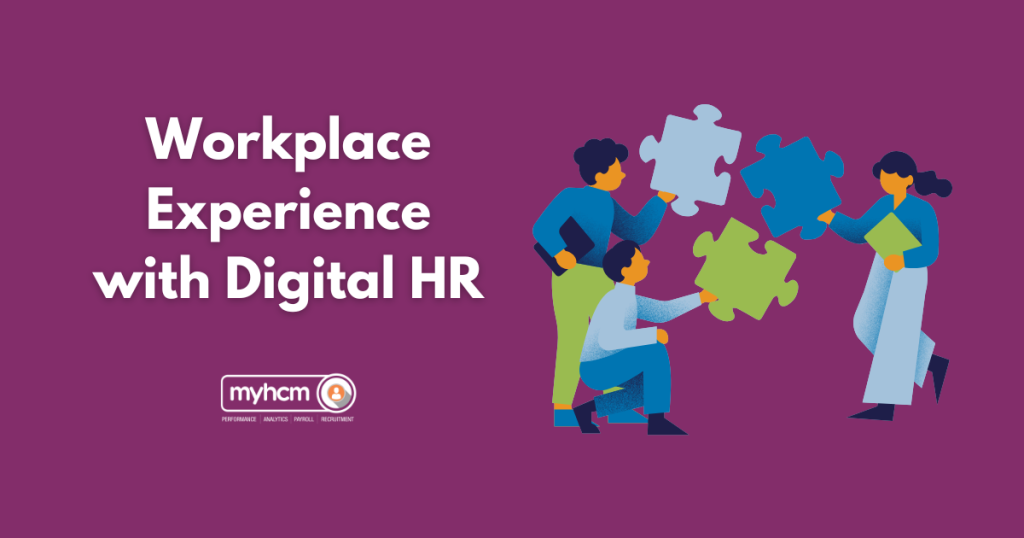In today’s rapidly evolving digital age, organizations are increasingly turning to technology to enhance the workplace experience for their employees. Consequently, digital HR has emerged as a powerful tool to transform traditional HR practices. Furthermore, it aims to create a more engaging, efficient, and employee-centric workplace. Moreover, by leveraging technology, organizations can streamline HR processes, such as recruitment, onboarding, performance management, and employee training. Additionally, digital HR solutions provide employees with convenient access to HR services and information through self-service portals and mobile applications.
Therefore, this not only improves employee satisfaction but also enhances productivity and overall business performance. In conclusion, embracing digital HR is crucial for organizations that want to remain competitive in today’s dynamic market and attract and retain top talent.
Understanding Digital HR
Digital HR refers to the integration of digital technologies into HR processes. In essence, it involves leveraging a wide array of tools and strategies to modernize traditional HR functions. For instance, this encompasses the utilization of HR software, the power of social media platforms, and the cutting-edge capabilities of artificial intelligence (AI). By effectively harnessing these technologies, HR teams can streamline operations, enhance efficiency, and make data-driven decisions with greater confidence.
Furthermore, digital HR empowers organizations to automate repetitive tasks, thereby freeing up valuable time for HR professionals to focus on more strategic initiatives. Moreover, it facilitates improved communication and collaboration among employees, fostering a more connected and engaged workforce.
In conclusion, the adoption of digital HR practices is not merely a technological advancement; it represents a fundamental shift in how HR functions operate within modern organizations.
Impact of Digital HR on Workplace Experience
Digital HR has a profound impact on the workplace experience in several ways:
Enhanced Employee Engagement: Digital HR tools can foster a sense of community and belonging among employees. Social media platforms, collaboration tools, and employee recognition programs can boost morale and motivation.
Improved Employee Communication: Digital HR tools facilitate seamless communication between employees and management. Instant messaging, video conferencing, and employee portals can enhance collaboration and information sharing.
Personalized Employee Experiences: By analyzing employee data, HR teams can tailor benefits, training programs, and career development opportunities to individual needs and preferences.
Streamlined HR Processes: Digital HR tools can automate routine HR tasks, such as payroll, benefits administration, and time and attendance tracking, saving time and reducing errors.
Data-Driven Decision Making: By leveraging data analytics, HR teams can make informed decisions about talent acquisition, performance management, and employee retention.
Key Digital HR Tools for Elevating Workplace Experience
Several digital HR tools can be used to enhance the workplace experience:
HR Software: HR software can streamline various HR processes, including recruitment, onboarding, performance management, and payroll.
Employee Self-Service Portals: Employee self-service portals allow employees to access HR information, update their personal details, and submit requests online.
Collaboration Tools: Collaboration tools, such as Microsoft Teams and Slack, facilitate teamwork and communication.
Learning Management Systems (LMS): LMS platforms enable organizations to deliver online training programs and track employee development.
Employee Recognition Platforms: Employee recognition platforms allow organizations to recognize and reward employee achievements.
Conclusion
Digital HR has the transformative potential to revolutionize the workplace experience for both employees and organizations. By embracing digital technologies, organizations can cultivate a more engaging, efficient, and employee-centric work environment. This shift in focus towards the employee experience yields significant benefits. Primarily, organizations that prioritize employee well-being can effectively attract and retain top talent in today’s competitive market. A positive employee experience fosters a sense of belonging, boosts morale, and enhances overall job satisfaction. Furthermore, a digitally empowered workforce experiences increased productivity. Streamlined processes, automated tasks, and readily accessible information empower employees to work more efficiently and effectively.
Ultimately, a thriving employee experience directly contributes to driving business success. Engaged and productive employees are more likely to innovate, exceed expectations, and contribute positively to organizational goals. In conclusion, embracing digital HR is not merely an IT initiative; it’s a strategic decision that can significantly impact an organization’s long-term success.
